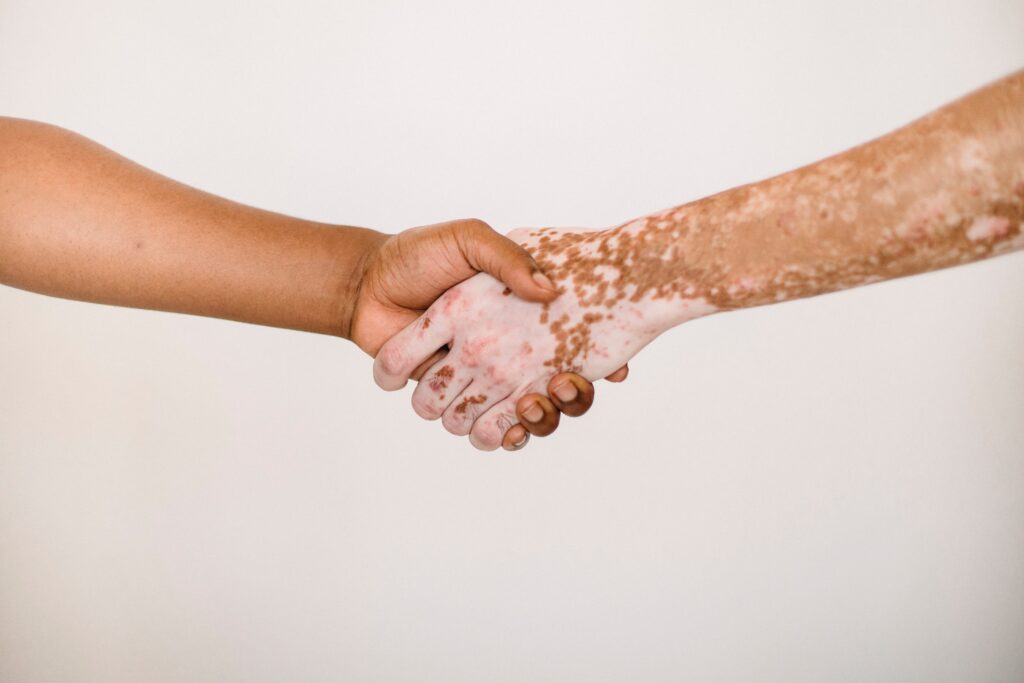Healthy VS Toxic Friendships – How To Tell The Difference


Friends are allowed to make mistakes, it’s normal in every friendship. The problem starts when your friend has been displaying a lot of suspicious, uncaring behaviour towards you. When your friendships stop feeling like one of the good things in your life, that’s when you might need to evaluate it, it’s sustainability and healthiness.
A healthy friendship is mostly based on trust, respect, generosity of resources, time and support. A toxic friendship is fraught with mental confusion, exhaustion, angry outbursts, depleted energy and disappointment and distrust. While it’s easier to define toxicity, it’s not always easy to spot it in real life. Because unhealthy behaviour is more subtle, it sneaks into the friendship dynamic and becomes the ruling principle of it.
While not all toxic friendships are created equally, they have some similarities and it would be very beneficial for you to adopt an objective, observant view and take stock of your friendship as of late and all the way to the feelings and behaviours exhibited in the early stages. So here is a list of 9 signs that can help you see whether your friendship is healthy or not.
- Reciprocity : Giving More Than You Get

Healthy friendships have an equal give and take. They are flexible because sometimes you give more or take more when necessary, but like a scale, balance is eventually and regularly achieved. You don’t feel like you are going without.
With toxic friendships, do you find yourself mostly initiating the text conversations because your friend doesn’t talk to you unless you get things started? Is there a lot of emotional labour on your part? This kind of behaviour can leave you feeling used because you’re always able to help but your friend doesn’t return the favour. If this is more of a pattern than a few instances, it’s not very sustainable for the friendship.
- Communication : Dreading Checking Your Phone

Healthy friendships don’t make you brainstorm what to say about not picking up your phone when your friend calls. You make plans to chat or you just text when you can without any pressure. There’s a free flowing element to your communication.
Do you find that your friend calls and texts you incessantly throughout the day and regularly? Do they rush you for replies and throw tantrums when you don’t do it when they want you to ? If your friend is acting obsessively needy, like a partner that needs your attention 24/7 and you feel anxiety and dread when your phone lights up because you think it’s them, you might need to set some boundaries.
- Quality Time : You Don’t Want To Hang Out With Them

In healthy friendships, you understand that you are both busy people with your own unique lives and you will not always get the time to hangout but you do schedule outings or indoor activities via video call or in person. You are grateful for each other’s time because you know that you’re not entitled to it.
You might be in a toxic friendship if you find yourself celebrating canceled plans or lying in order to avoid having to see them. They demand your attention and make things about them, especially when they aren’t. Elizabeth Lombardo, clinical psychologist and author stated that hanging out with someone who’s not good for you mentally can result in anxiety, headaches and stomach aches because it feels like a draining chore.
- Success : You Compete With Them

Healthy friends want to see their bestie succeed. It’s inspiring and you just feel really happy for them because they deserve it. There might even be a healthy level of competition in the friendship but you still want your friends to win and have no ill will towards them. Jealousy is normal occasionally.
In unhealthy friendships, you or your friend are always in competition with each other to show that you have a better job, partner or hobby. You don’t want to see the other succeed at something. In extreme cases, you or your friend might start copying each other, like certain phrases or clothing items. There are high levels of jealousy and comparisons.
- Intention : You Doubt Their Intentions Towards You

Healthy friendships have your best interests at heart, even though they are not perfect. A good friend can unintentionally hurt you, even when their intentions were good but they sincerely apologize. You also have inside jokes while knowing which “jokes” to never say because they are harmful and unnecessary.
Toxic friends make you doubt their intentions towards you. They “tease” and insult you, make you feel bad about yourself and peer pressure you into things that they know aren’t good for you. You constantly feel let down by them and your different moral compasses make you feel suspicious about them. This is a sign that something isn’t right in the friendship.
- Judgment : They’re Hypercritical

A healthy friendship is honest and sometimes your friend will tell you things you don’t want to hear, no matter how honest they are. It’s constructive criticism. They celebrate your wins and don’t judge you for your mistakes, though.
Toxic friends are hypercritical. They don’t congratulate you and they give backhanded compliments. They constantly remind you of your failures and use them against you. They are okay with embarrassing you and don’t feel bad for letting you down. They are irrational and love bringing you down to make themselves feel superior to you.
- Respect : They Ignore Your Boundaries

In healthy friendships, respect is a normal necessary thing. By having boundaries, you show that you are separate beings but still connected in a respectful and healthy way. You listen to each other and extend empathy in certain instances and that creates or deepens your connection.
Toxic friends never really listen to you, they are just waiting to speak again. They have no respect for your boundaries and space and will instead make you feel like you’re mean or crazy for setting boundaries. They monopolize conversations and always find ways to make it about them.
- Envy : They Are Jealous Of Your Other Friends

Healthy friendships know that you have other friends and are willing to work around plans you have with the group, depending on what needs to be done. They don’t interrupt your time with them.
Unhealthy friends will blame your other friends when you don’t want to hangout with them or when you don’t pick up your phone. They will criticize them often. They will try to isolate you from them with manipulation tactics like “you’re my only real friend” and “you’re the only person who gets me” and “why don’t you want to spend time with me? You spend all your time with your other friends ” . They will try to monopolize time with you and lie if they have to or just want to.
- Trust : They Make You Question The Friendship And Doubt Yourself

Healthy friendships are built on trust because if you don’t trust your friend, then what’s the point? Those types of friends take responsibility for their own actions and any mistakes that caused you harm and distress.
Toxic friends deflect and don’t take responsibility for the havoc they might wreck in your life. They lie or tweak information to make you confused and stressed out. They blame you and everyone else for their actions. You feel unstable around them, like your energy is being drained out of you. You feel like something isn’t right in the friendship because when you’re around them, you feel off, like something is missing. You might find yourself having brain fog or your self esteem starting to suffer because you second guess yourself so much.
FINAL THOUGHTS
This is not a final list of healthy v toxic friendships and that’s why it’s important to do more research on it. Asking for an outsider’s perspective can be a great help because it is usually an objective view and like I said before, taking inventory of the events that happened within the friendship and how you feel is a great indicator of any behaviour that needs to be addressed. If you relate to any of these characteristics, you have the opportunity to change and grow with professional help and time. Reevaluating your friendships and their health is important for everyone involved and you shouldn’t feel like a failure if you decide to set and enforce boundaries if you’ve been trampled over, make more compromises or have to eventually end the friendship. The only constant is change and it isn’t always a bad thing.
Good luck and see you soon.
REFERENCES
*Arzt, N. (2021, August 26). Toxic friends: 13 signs of a toxic friendship. Choosing Therapy. Retrieved November 19, 2021, from https://www.choosingtherapy.com/toxic-friends/.
*Blumberg , P. O., & Geller, L. (2021, November 10). If your BFF is doing any of these things, they’re probably a toxic friend. Women’s Health. Retrieved November 19, 2021, from https://www.womenshealthmag.com/relationships/a25939904/signs-of-toxic-friendships/.
*Dodgson, L. (2020, May 17). 13 signs your friendship with someone is toxic. Google. Retrieved November 19, 2021, from https://www.google.com/amp/s/www.businessinsider.com/signs-your-friendship-is-toxic-2018-2%3famp.



Responses